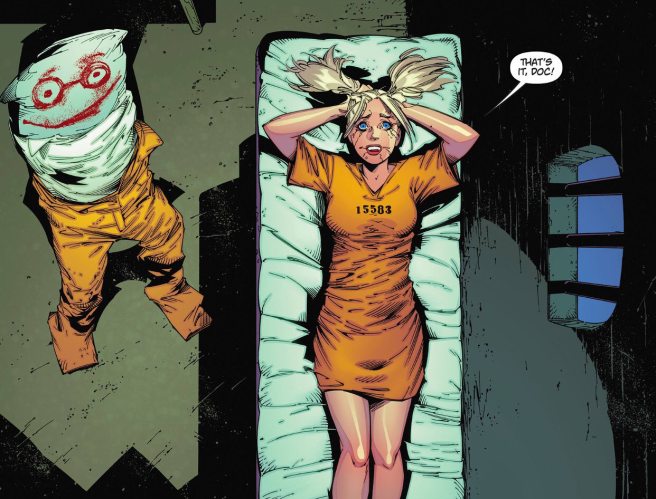I’m neurons-deep into Marvel’s Luke Cage on Netflix, and I’m loving this brooding, cinematic, contemporary (and socially conscious blaxploitation-style) series. I adore the Harlem/Hell’s Kitchen Marvel universes of Jessica Jones and Daredevil and I was thrilled to hear Power Man would be highlighted in his own series. Not to mention the return of series-linking pseudo-heroine Claire Temple played by the amazing Rosario Dawson. Dawson previously pissed me off as one of ‘the fallen’ therapists who entangles erotically with my favorite onscreen ‘mad-man’ in Danny Boyle’s Trance. However, she’s unarguably uber-talented and I love her in these shows.

My umbrage with Luke Cage ala Netflix is the warping of the character of Reva Connors. In the comics, Reva is one corner of a love triangle between Luke/Lucas and his lifelong frenemy Stryker (there’s a Stryker in every corner of Marvel, they’re like Starbucks.) Reva is set into the role of prison therapist in the Netflix series, responsible for facilitating process groups and working with prisoners. Reva and Carl Lucas (Luke Cage/Power Man’s given name) strike up rapport which quickly becomes unbounded.
This is that achingly overused relational dynamic of client/patient/prisoner and therapist. I’ve prattled-on about this a couple times, but dammit it just keeps coming up! The magic of the confirmation bias is that as soon as you’re looking for proof of your own assumptions you’ll find it in abundance! My bias is that this characterization of therapeutic alliance is tremendously tired at best and harmful at worst. Therapy and mental health treatment is chocked-full of stigma, and popular culture depictions of therapists as sexually predatory and ethically unconscious only fuels that further. I’d love to live in a world that doesn’t fear sitting with someone with legit training and exploring vulnerability as a strength-promoting process. We’re working towards that, and we’ve not arrived. Maybe we never will.
I wonder what lead the Luke Cage Netflix writers to head down this path with Reva Connors. Her importance to Luke could have been entirely retained as she exists in the comics, and the complicated relationship with Stryker would have been all the more developed. What drove those retelling this beloved story to make Reva-the clinician who is ethically responsible for Cage’s mental health-decide to upend her career, break her ethics code and flee with an AWOL prisoner, innocent or not?! It’s a curious question, and it’s ever more curious that I find myself asking this same question over and over again.





 Scare Tactics: the monster of mental illness in horror films
Scare Tactics: the monster of mental illness in horror films
 Mad Mac: James McAvoy, my modern master of onscreen ‘madness’
Mad Mac: James McAvoy, my modern master of onscreen ‘madness’

